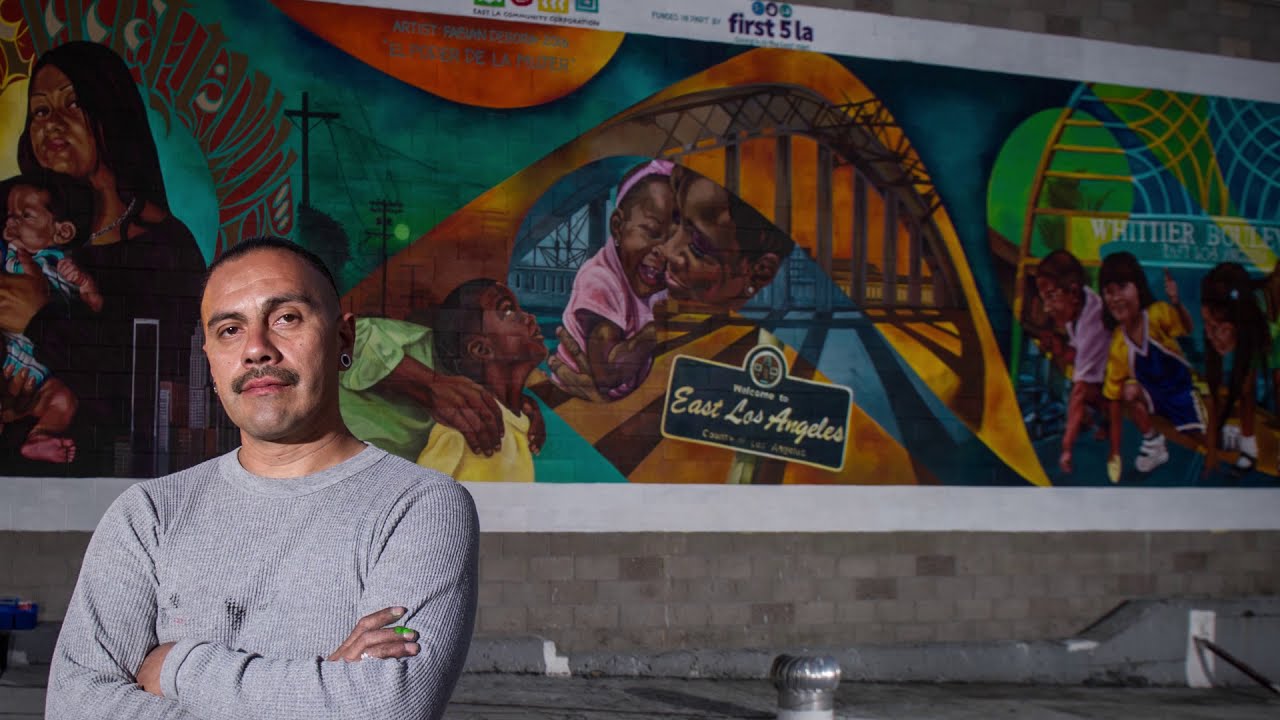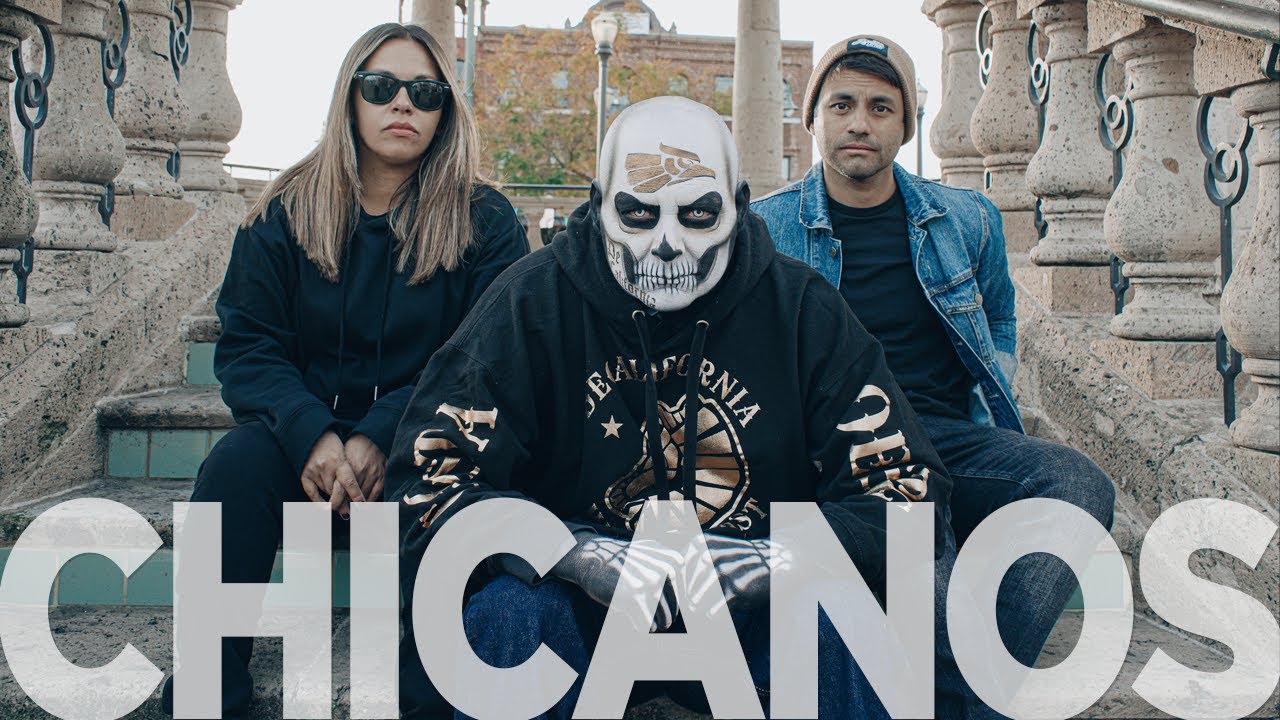Cherrie Moraga Talks About Identity
Summary
TLDRThe speaker identifies as a Chicana writer, emphasizing their Mexican-American roots and the political significance of the Chicano identity that emerged in the 1960s. They reflect on growing up in a culturally rich environment, shaped by family history and the struggle for recognition of indigenous heritage in America. The speaker's experiences are framed by various social movements, including feminism and LGBTQ rights, which influenced their writing journey. They highlight the challenge of finding an authentic voice amidst mainstream narratives, ultimately leading them back to their origins and cultural identity.
Takeaways
- 😀 The term 'Chicana/o' reflects a political identity for Mexican Americans, emphasizing indigenous roots in the Americas.
- 😀 The Chicana/o movement emerged in the 1960s as a response to the experiences and rights of Mexican Americans.
- 😀 The speaker identifies as a Chicana writer, integrating their cultural background into their writing and activism.
- 😀 Growing up in a Mexican-American household influenced the speaker's understanding of their identity and heritage.
- 😀 The speaker's family history includes strong female figures, highlighting the importance of cultural lineage.
- 😀 Education often encouraged assimilation into mainstream American culture, overshadowing cultural roots.
- 😀 The speaker's coming of age coincided with significant social movements, including civil rights, feminism, and LGBTQ rights.
- 😀 There is a desire to seek an authentic voice in writing rather than imitating established literary figures.
- 😀 The speaker's exploration of identity is deeply intertwined with their experiences of social change and activism.
- 😀 The journey of self-discovery is portrayed as a reclamation of cultural identity and personal history through writing.
Q & A
What does the term 'Chicana' mean?
-The term 'Chicana' refers to a Mexican-American woman who identifies with her indigenous roots and cultural heritage in the United States, originating as a political identity during the civil rights movements of the 1960s.
How did the speaker's upbringing influence their identity?
-The speaker grew up in a Mexican-American home with deep cultural ties, which shaped their understanding of identity and activism, especially in the context of being part of multiple social movements.
What role did family history play in the speaker's life?
-The speaker's family history, including their grandmother's and mother's experiences, provided a rich cultural backdrop that informed their identity and writing, emphasizing the importance of family in understanding one's roots.
How did the speaker's education impact their identity?
-The speaker, as a first-generation educated individual, initially felt pressure to conform to mainstream American identity, but eventually sought to embrace their cultural heritage and find an original voice in their writing.
What movements influenced the speaker during their formative years?
-The speaker was influenced by various movements including the Chicano movement, Black Power movement, Civil Rights movement, feminist movement, and the gay and lesbian movement, which collectively shaped their perspective on identity and activism.
How does the speaker define their writing journey?
-The speaker describes their writing journey as a return to their origins, where they sought to express their unique voice rather than imitating established white writers, thereby reconnecting with their cultural identity.
What significance does the term 'Gringos' hold in the speaker's narrative?
-The term 'Gringos' is used by the speaker to highlight the historical context of migration and settlement in the Americas, emphasizing that Mexican-Americans are native to the land and have a rightful claim to their heritage.
Why does the speaker consider the term 'Chicana' to be politicized?
-The term 'Chicana' is seen as politicized because it was born out of a movement for social justice, asserting the rights of Mexican-Americans and their indigenous heritage in a landscape often dominated by other immigrant narratives.
In what ways does the speaker's identity intersect with feminism?
-The speaker's identity intersects with feminism as they navigate their roles as a Chicana and a queer individual, finding empowerment and solidarity within these interconnected identities.
What does the speaker hope to convey through their writing?
-The speaker aims to convey the importance of cultural identity and authenticity in writing, encouraging others to explore their roots and express their unique voices.
Outlines

このセクションは有料ユーザー限定です。 アクセスするには、アップグレードをお願いします。
今すぐアップグレードMindmap

このセクションは有料ユーザー限定です。 アクセスするには、アップグレードをお願いします。
今すぐアップグレードKeywords

このセクションは有料ユーザー限定です。 アクセスするには、アップグレードをお願いします。
今すぐアップグレードHighlights

このセクションは有料ユーザー限定です。 アクセスするには、アップグレードをお願いします。
今すぐアップグレードTranscripts

このセクションは有料ユーザー限定です。 アクセスするには、アップグレードをお願いします。
今すぐアップグレード関連動画をさらに表示

Chicano Identity Through the Murals of East Los Angeles

Así es la CULTURA CHICANA en LOS ANGELES 🇺🇸 ¡DISCRIMINADOS en su PROPIO PAÍS!

Cheech Marin on being Chicano

Not Mexican or American Enough: Bicultural Identity Struggles | Ranchel Alvarado | TEDxSHSU

Chicana Feminism within Chicano Movement

Los Tres Grandes | Vida Americana: Mexican Muralists Remake American Art, 1925–1945
5.0 / 5 (0 votes)
